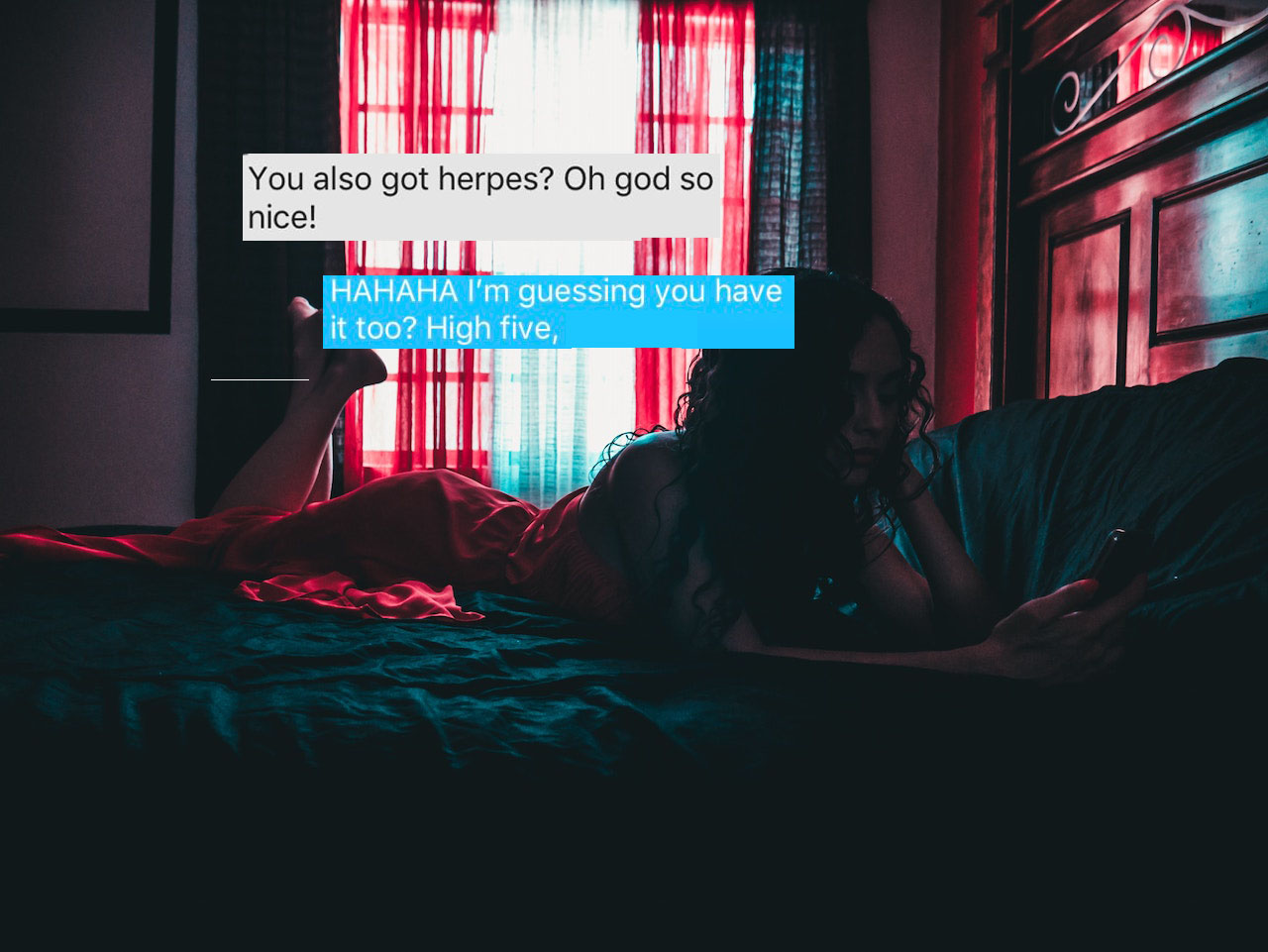To put it nicely, many of us who’ve waded into the online dating pool would have called it a horrible experience at one point or another.
Now imagine doing this when you have an incurable sexually transmitted disease (STD). Typical dating concerns, such as wondering whether someone likes you or being judged for a poorly lit selfie, suddenly feel frivolous in comparison.
First, there’s the inconvenient worry that someone will discover your ‘secret’ before you’re ready to share it. Then you have to figure out when to share, especially if they are someone you really like. And as expected, you must then learn to deal with rejection if they freak out. All of it somewhat resembles ‘coming out’.
The point is to give off the impression that you’ve got things under control; to reassure them that everything is okay, as though they are the ones with the STD.
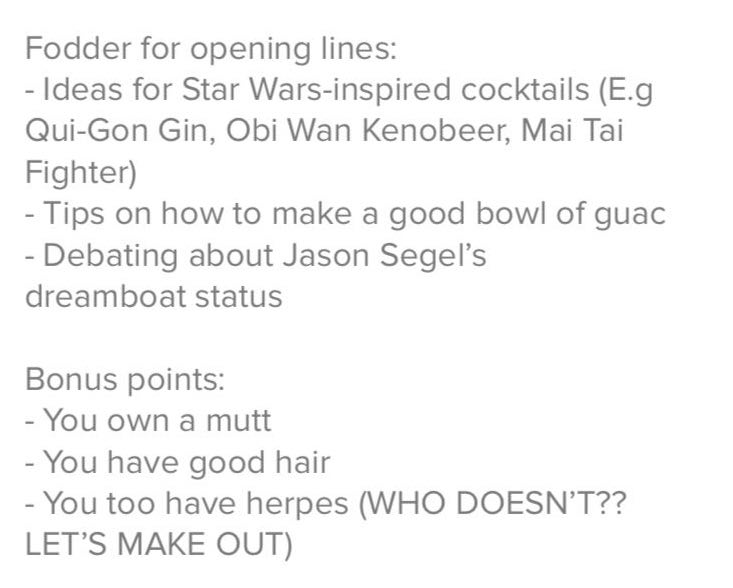
That said, online dating is a whole other ball game.
But because Lisa is someone who doesn’t shy away from raw honesty, I ask if she would willingly and explicitly declare on her Tinder bio that she has herpes.
While I want to find out if people with STDs have a harder time in the dating scene, mentioning that Lisa has herpes also acts as an automatic filter for her to sieve out those who aren’t worth her time and effort. She agrees without a second thought.
So for a week, she places an explicit disclaimer on her profile and spends that time swiping right on every guy. In all, she achieves an 80% success rate, which is considerably high even for someone without herpes.
Lisa accounts part of her success to guys who typically swiping right on every girl, no matter their bio, but also reveals that none of her matches unmatched after realising what her bio stated.
“What surprised me most was that I never expected people to open up about their own herpes conditions. There were many who did, which felt really nice. They came forth and told me they wouldn’t have done so if I didn’t do it first. It was as though we were somewhat on the same level of vulnerability,” she says.
“Herpes was a non-issue with the people who acknowledged it, and it also made a good conversation starter.”
Lisa’s friends have always been encouraging, but discovering a silent support group of total strangers ready and willing to listen simply because of a life-changing shared experience provides a different kind of solace and relief.

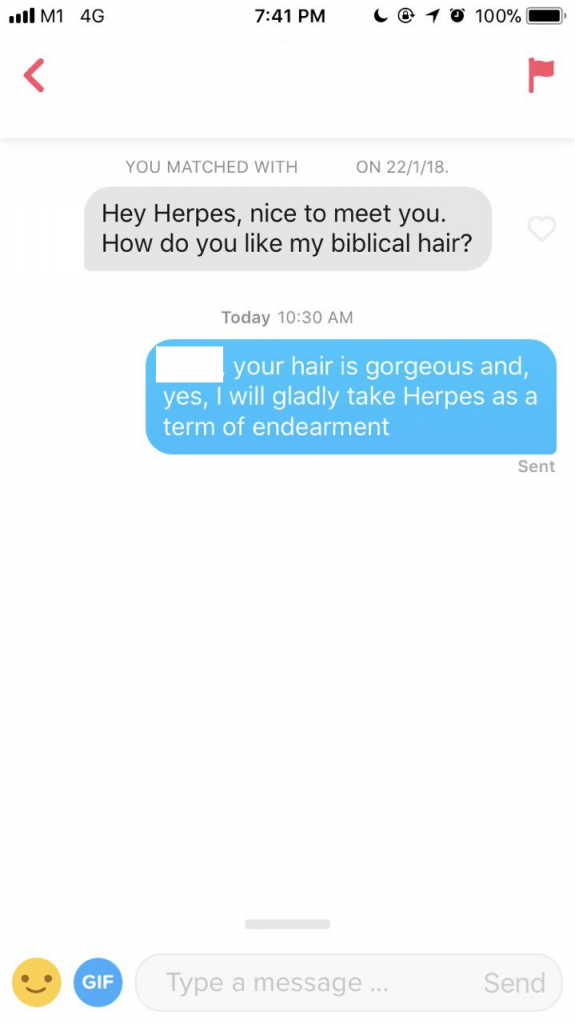
I also wonder how the results would turn out if she was less good looking, or if a man admitted to having herpes on his Tinder bio.
Nonetheless, this nonchalance can be attractive and she makes plans to meet one of them, who is Singaporean Chinese, offline.
These men might be cool with a simple night of fun, but how many would bother sticking with a person who has an incurable disease, even if they have it themselves? Realistically speaking, how much do you have to like someone in order for an STD not to be a dealbreaker?
These are valid questions, but not something Lisa seems concerned with. She’s comfortable in her own skin and has open-minded friends.
As for building relationships with new people, being HSV positive hasn’t hindered Lisa being romantically involved. Getting her matches on Tinder also reinforces as much. She has no qualms about telling people about her condition once the relationship reaches a certain level of comfort, and she always brings it up depending on the circumstances.
“The topic should come up naturally. When I first unloaded this news on my best friend after finding out, that helped me realise it’s fine and completely okay to talk about it. It felt like a weight lifted.”
Moreover, it’s not the “end of the world”. What makes people think it’s the end is the lack of STD general knowledge, and the social stigma that is only reinforced by this.
With Lisa, the “knowledge is power” cliche rings true. Where the myriad questions she had about her disease once paralysed her, she now embraces as an opportunity to do in-depth research online.
If anything, having herpes has helped her broach educational conversations about sexual health and intimacy with friends or potential partners, which she sees as her duty.
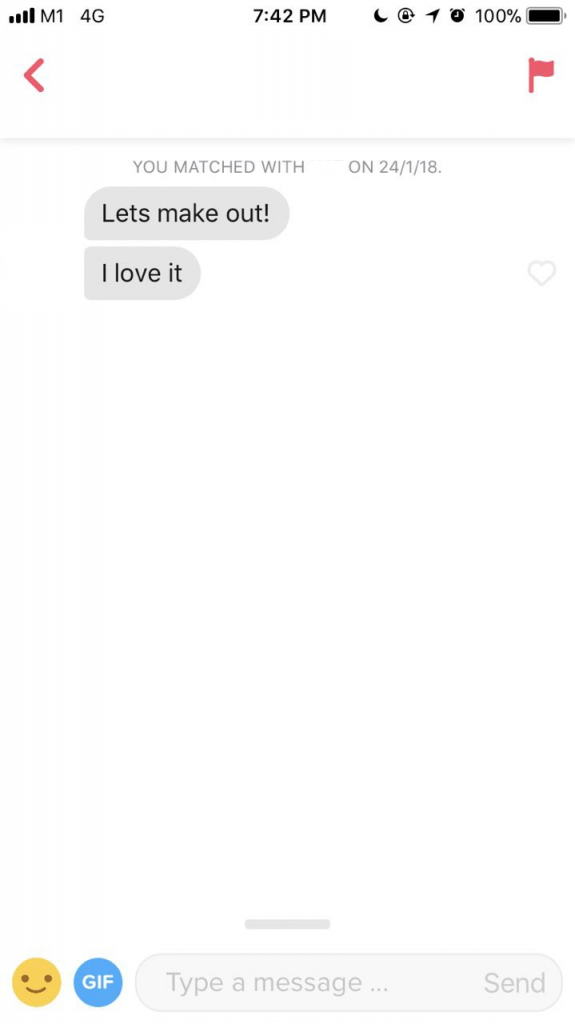
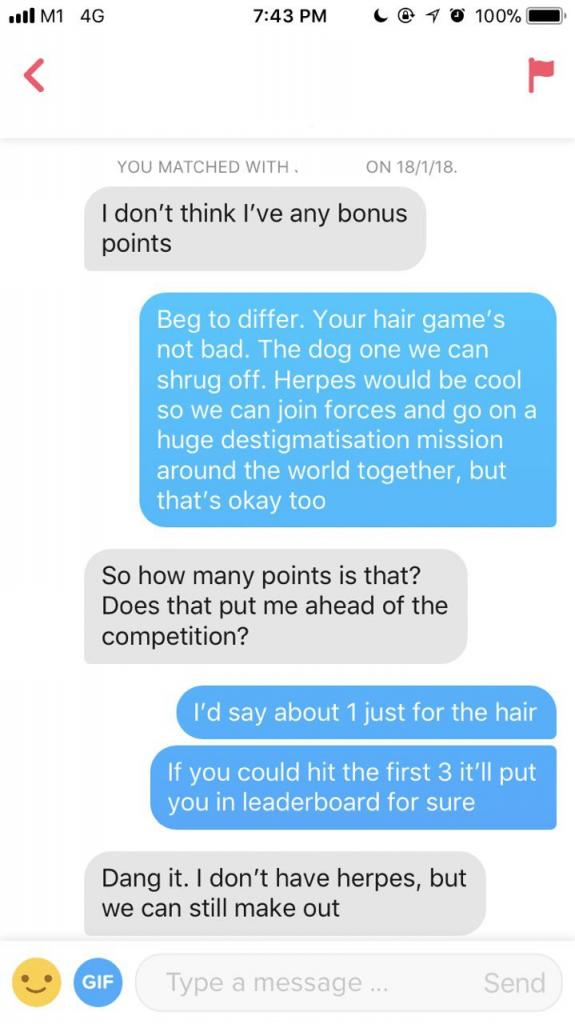
“Personally, I never liked people looking at me with sad, pitiful eyes. You either help me right away or you fuck off. What am I supposed to do with your sympathy? I’m sure you mean well, but unless you have a cure for HSV, don’t give me your patronising ‘Aww, babe, it’s going to be okay.’ I know it’s going to be okay, tell me something I don’t know.”
This misguided sympathy may stem from the fact that many people don’t know how to react or feel when confronted with difficult or heavy personal news. We end up doing something that alleviates our own discomfort.
So, stating that she has herpes on her Tinder bio is a rare chance to take circumstances into her own hands. It’s unfiltered and upfront from the start, reducing the likelihood of getting to know someone who would eventually pass judgement to her face.
Swiping left, ultimately, does everyone a favour.
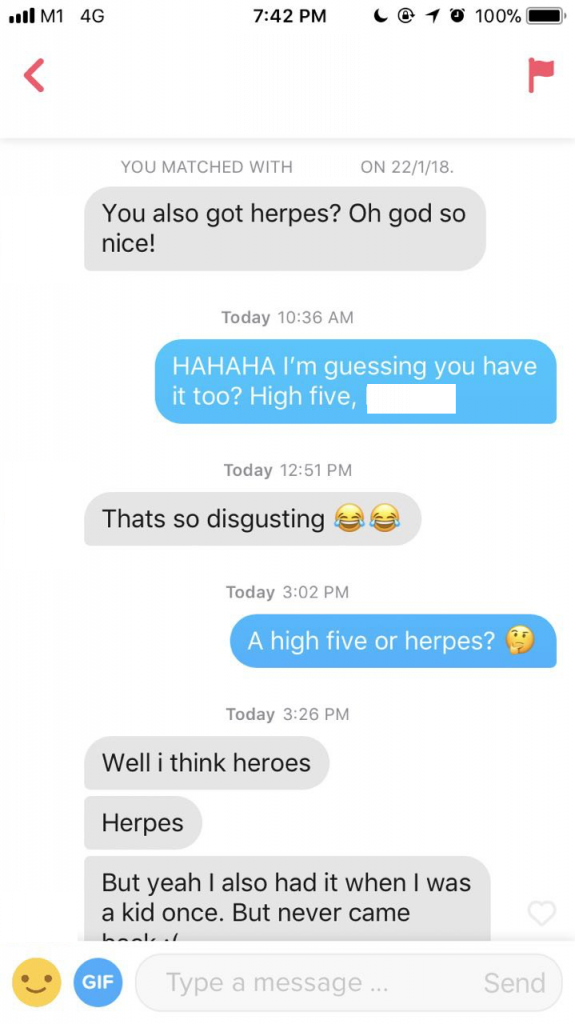
“Initially, the discovery I had herpes consumed me a little, but it’s such a non-issue now. I’m still very much the same person as I was before. I’m also aware I have other things going for me, such as I’m the friend people go to for relationship advice, for solid social media posts, and so on.”
Lisa also still keeps in touch with the man who passed herpes to her, though she admits to feeling slightly resentful that he doesn’t really believe in talking about it or doing more to educate others.
She says they still see each other out of convenience since there’s no need to explain their history. While they do connect on an emotional level, there’s “no love” and “right now there’s no way [she] can see [herself] ending up with him”.
Even though there are days when Lisa’s mind goes into overdrive, she has learnt to cope better and sees the value in “not thinking too much”, as trite as that advice may sound.
“You’re going to start assuming things and having a million questions you’re too afraid to ask because you’re scared of sounding stupid, and they start other questions, that start other questions, and at the end of it, you’re going to feel like it’s towering above you. You’re completely paralysed by the size of this thing in front of you. It’s the worst,” she says.
Of course, all of this is easier said than done. So if she ever feels the need to talk to someone who understands exactly what she’s going through but can’t find a friend, now she knows she can always pick up her phone and start swiping right.
